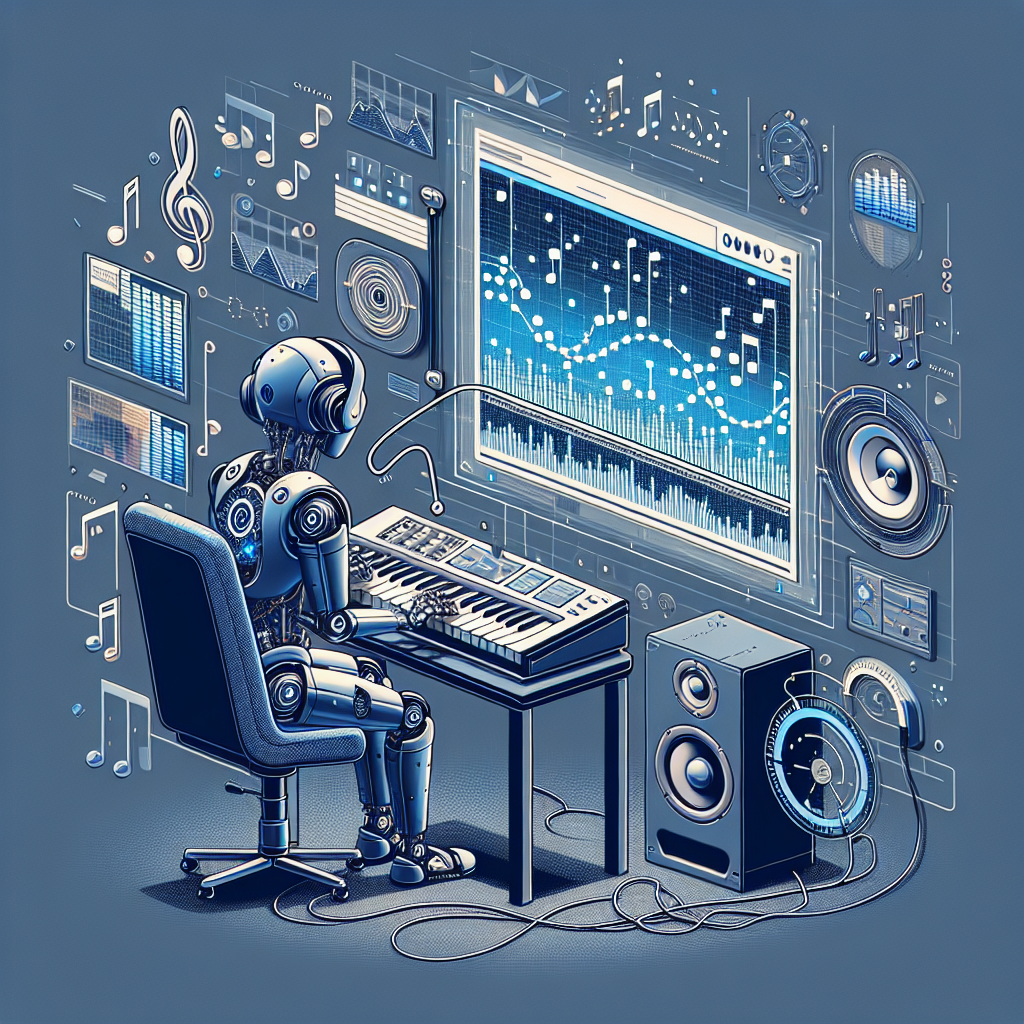Music creation has always been a field that requires immense creativity, skill, and dedication. Artists spend countless hours honing their craft, mastering instruments, and perfecting their compositions. However, with the advent of artificial intelligence (AI), the landscape of music creation is quickly changing. AI technology is revolutionizing the way music is made, offering a wealth of benefits to both artists and listeners alike.
One of the primary benefits of AI in music creation is its ability to streamline the composition process. With AI algorithms, artists can quickly generate musical ideas, experiment with different sounds and styles, and easily manipulate and arrange their compositions. This can help artists overcome creative blocks, explore new musical territories, and ultimately produce more music in less time. AI can also assist in the production process, helping artists with tasks such as mixing, mastering, and even creating album artwork.
Another key benefit of AI in music creation is its potential to democratize the music industry. Traditionally, the music industry has been dominated by major record labels and established artists, making it difficult for up-and-coming musicians to break into the scene. However, AI technology is leveling the playing field by providing artists with tools to create high-quality music without the need for expensive equipment or studio time. This allows artists to produce and distribute their music independently, reaching a wider audience and building a fan base without the need for a major record deal.
AI technology is also revolutionizing the way music is consumed. Streaming platforms such as Spotify and Apple Music are leveraging AI algorithms to curate personalized playlists for listeners based on their listening habits and preferences. This not only helps listeners discover new music but also provides artists with exposure to a larger audience. AI can also be used to analyze music trends and predict which songs will be hits, helping artists and record labels tailor their marketing strategies and reach a wider audience.
In addition to its benefits for artists and listeners, AI in music creation is also opening up new possibilities for collaboration. Artists can now collaborate with AI systems to create music that blends human creativity with machine intelligence. This can lead to innovative and unique musical experiences that push the boundaries of traditional music genres and styles.
Despite its numerous benefits, AI in music creation also raises some concerns. One of the main concerns is the potential loss of creativity and authenticity in music. Some critics argue that AI-generated music lacks the emotional depth and human touch that is essential to music. While AI can certainly assist in the composition process, it is ultimately up to the artist to infuse their music with their own personal experiences and emotions.
Another concern is the impact of AI on the music industry and job market. As AI technology continues to advance, there is a fear that AI systems could replace human musicians and music producers, leading to job loss and a decline in the quality of music. However, many experts argue that AI should be seen as a tool to enhance human creativity rather than replace it entirely. By leveraging AI technology, artists can expand their creative possibilities and reach new heights in their musical endeavors.
Overall, the benefits of AI in music creation far outweigh the concerns. AI technology is empowering artists to create music in ways that were previously unimaginable, opening up new opportunities for creativity, collaboration, and innovation. As AI technology continues to evolve, it will be exciting to see how it shapes the future of music creation and the music industry as a whole.
FAQs:
1. Can AI create music on its own?
While AI algorithms can generate musical ideas and compositions, they still require human input and guidance to create music that resonates with listeners. AI can assist in the composition process by providing artists with tools to experiment with different sounds and styles, but ultimately it is up to the artist to infuse their music with their own creativity and emotions.
2. How can AI benefit independent artists?
AI technology can benefit independent artists by providing them with tools to create high-quality music without the need for expensive equipment or studio time. Artists can produce and distribute their music independently, reaching a wider audience and building a fan base without the need for a major record deal. AI can also assist artists in tasks such as mixing, mastering, and marketing, helping them to navigate the music industry more effectively.
3. Will AI replace human musicians?
While AI technology is advancing rapidly, it is unlikely that AI will completely replace human musicians. AI should be seen as a tool to enhance human creativity rather than replace it entirely. By leveraging AI technology, artists can expand their creative possibilities and reach new heights in their musical endeavors.
4. How can AI help listeners discover new music?
Streaming platforms such as Spotify and Apple Music are leveraging AI algorithms to curate personalized playlists for listeners based on their listening habits and preferences. This helps listeners discover new music that aligns with their tastes and provides artists with exposure to a larger audience. AI can also analyze music trends and predict which songs will be hits, helping listeners stay up to date with the latest music releases.

